Education
Yale: developing the whole man
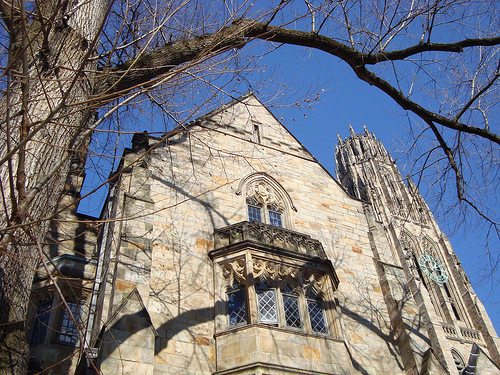
Yale, originally a College, has undergone profound change since the 18th century, as one may glean from this discussion on Wikipedia.
Early curriculum development at Yale
Its early presidents, e.g., Thomas Clap and Ezra Stiles, were both instrumental in developing the scientific curriculum at Yale. They also dealt with wars, student tumults, graffiti, “irrelevance” of curricula, desperate need for endowment, and fights with the Connecticut legislature. The original significance of Hebrew has evaporated.
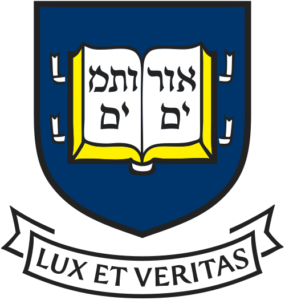
Arms of Yale University. Azure an open book argent bearing two Hebrew words, Urim v’Thummim, Light and Perfection. Motto: Lux et Veritas, Light and Truth.
Serious American students of theology, particularly in New England, regarded Hebrew as a classical language, along with Greek and Latin, and essential for study of the Old Testament in the original words. The Reverend Ezra Stiles, president of the College from 1778 to 1795, brought with him his interest in the Hebrew language as a vehicle for studying ancient Biblical texts in their original language (as was common in other schools). He required all freshmen to study Hebrew. (In contrast, Harvard required only upperclassmen to study the language). Unsurprisingly, the Hebrew words Urim and Thummim appear on the Yale seal.
The Directed Studies program at Yale was founded for 125 first-year students as an interdisciplinary course encompassing great works of Western thought.
As the only college in Connecticut, Yale educated the sons of the elite. Offenses for which students were punished included card-playing, tavern-going, and acts of disobedience to college authorities.
Defending a classical education
The Yale Report of 1828 was a dogmatic defense of the Latin and Greek curriculum against critics who wanted more courses in modern languages, mathematics, and science. Unlike higher education in Europe, the United States had no national curriculum for colleges and universities. In the competition for students and financial support, college leaders strove to keep current with demands for innovation. At the same time, they realized that a significant portion of their students and prospective students demanded a classical background.
The Yale report meant Yale would not abandon the classics. At the same time, all institutions experimented with changes in the curriculum, often resulting in a dual track. In the decentralized environment of higher education in the United States, balancing change with tradition was a common challenge. This was because no one could afford to be completely modern or completely classical.
At the same time a group of professors at Yale and New Haven Congregationalist ministers articulated a conservative response to the changes brought about by the Victorian culture. They concentrated on “developing a whole man.” He would possess religious values sufficiently strong to resist temptations from within. Yet he would also be flexible enough to adjust to the ‘isms’ (professionalism, materialism, and individualism tempting him from without).
Today, the idea of developing a whole man has become meaningless. Indeed, the ascendancy of same-sex marriage has made the concept of man passé!☼
-
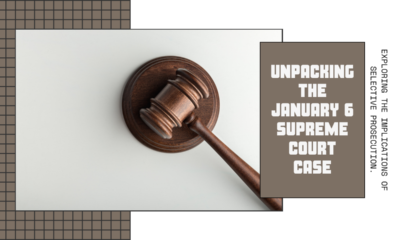
 Executive1 day ago
Executive1 day agoJanuary 6 case comes down to selective prosecution
-

 News1 day ago
News1 day agoRolling the Dice on Republicans: Has the Right Become Delusional?
-
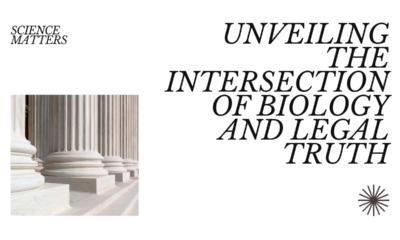
 Civilization1 day ago
Civilization1 day agoBiology, the Supreme Court, and truth
-
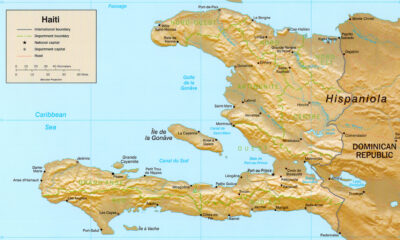
 Civilization11 hours ago
Civilization11 hours agoPresident Biden Must Not Encourage Illegal Mass Migration From Haiti
-

 Executive13 hours ago
Executive13 hours agoWhy Fatal Police Shootings Aren’t Declining: Some Uncomfortable Facts
-
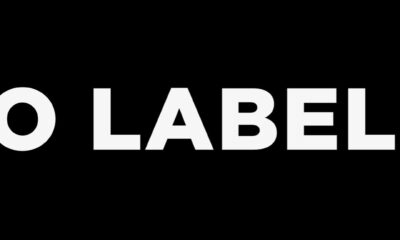
 Guest Columns11 hours ago
Guest Columns11 hours agoWhat Was Won in No Labels’ Crusade
-

 Entertainment Today14 hours ago
Entertainment Today14 hours agoWaste of the Day: Throwback Thursday: Millions Went To Video Game ‘Research’
-

 Constitution12 hours ago
Constitution12 hours agoEquality Under the Law and Conflicts of Interest in New York













